Meet the McCombs Grad Behind the Austin-Based Indie Music from Golden Days and Stalefish
Dalton Hausman works a 9–5 at Dell in Round Rock. His resume includes a master’s in marketing and possesses all the requisite details of a McCombs Business School graduate. Omitted from the polished LinkedIn profile, however, is that for a majority of this year, Hausman would arrive at his friend Jack’s house in the afternoon. There, he would don his bubblegum blue Fender Jazzmaster guitar, grab a beer with his bandmates, and compose lyrics for his band’s second album.
On a late September night at the Empire Control Room, Stalefish’s triad of principal songwriters constituting Hausman, BBA ’23, MSM ’24; Jake Magee, BS ’23; and Jack Ryon, perform songs off their sophomore album with drummer Jonathan Cazares, ’14; percussionist Avery Delost, ’23; and keyboardist Jonathen Pedraza. Opalescent waves swell across the backdrop for the six-member band. With Hausman at the helm, the band submerges into “The Conversation’s Over,” a longing rock confessional which evokes a 35mm vignette of a sun-studded Saturday spent at Zilker Park.
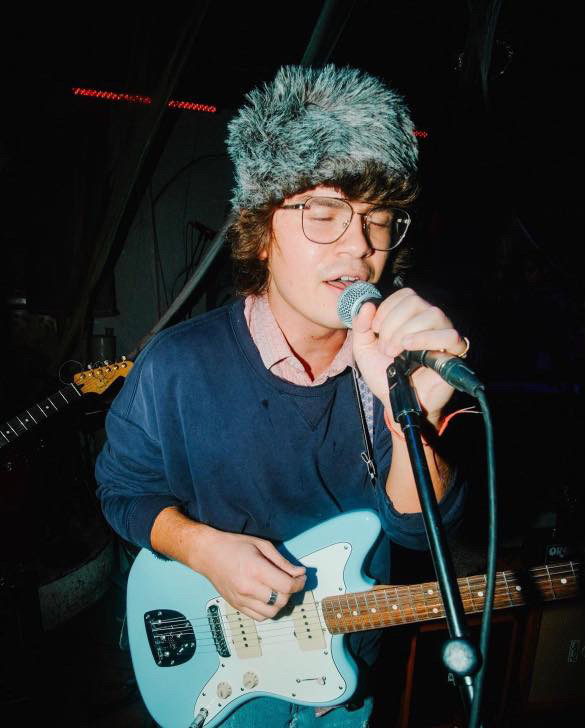
Roots
Hearing his dad play the guitar growing up formed the 23-year-old singer-songwriter’s penchant for music. He admittedly detested his childhood piano lessons, but Hausman’s curiosity about music burgeoned during his freshman year of high school.
“My uncle bought me a ukulele, which was really funny,” Hausman says. “He just bought me one randomly for Christmas, and then I picked that up and taught myself how to play. From there, I was like, Well, I kind of want to play the guitar instead of this.”
He taught himself how to play the guitar and began taking inspiration from the indie and shoegaze scenes, and the emergence of bedroom pop. Shoegaze music often features delicate vocals with guitar riffs layered on top of one another.
“I started getting really into Mac DeMarco when I was 15 years old,” Hausman says. “DeMarco was, like, my [icon], he could do no wrong. I wanted to be him so bad. I bought the shoes that he wore. I bought the guitar that he had.”
As a senior in high school in Eagle Pass, Texas, Hausman formed a band for a film festival his friend was taking part in for the school’s audiovisual club. They played two covers, with Hausman writing an additional song for the performance. Jonathan Cazares served as the drummer for that fledgling band.
“I've seen Dalton develop over the years, and I've seen him mature, not just in his own personal life, but musically as well,” Cazares says. “Because when I first met him, he was barely picking up the guitar and singing. I've literally been there from the very beginning of his music career. It's been a process, and it's been a very rewarding one at that.”
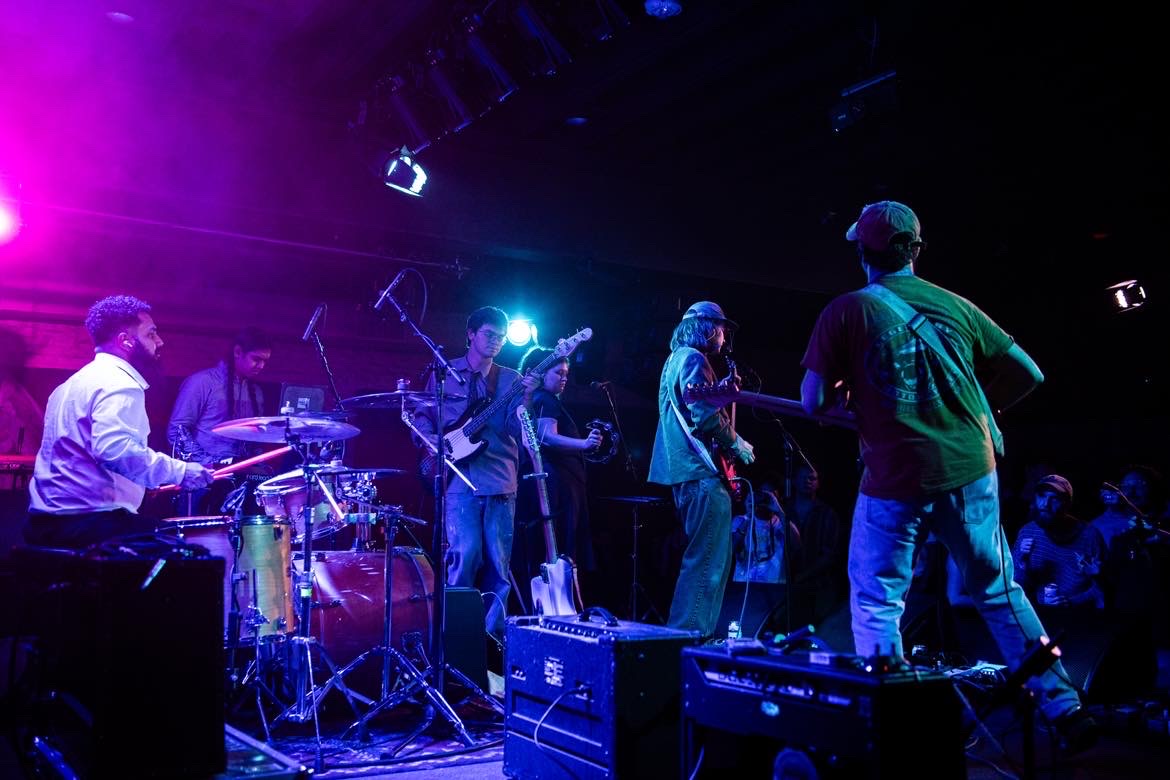
A golden era
While an undergraduate at The University of Texas, Hausman created the solo project Golden Days. In the two years since adopting the moniker, he released an EP, an album, and a handful of singles, all of which he self-produced. The singer garnered the skillset for post-production from his stepdad, who had a trove of equipment from Hausman’s step-uncle.
The catalog includes ode “Margerine” off the 2021 eponymous album, Golden Days, which embodies the fervency of a summer morning, with swirling, butter-like riffs against a fuchsia, soft rock soundscape. The 2020 single “The Frisco Kid” layers lo-fi vocals to tell the story of departure and homesickness. Riffs spill like Kinetic Sand in “Petrichor,” a song that distinctly contrasts from Hausman’s successive songs with Stalefish.
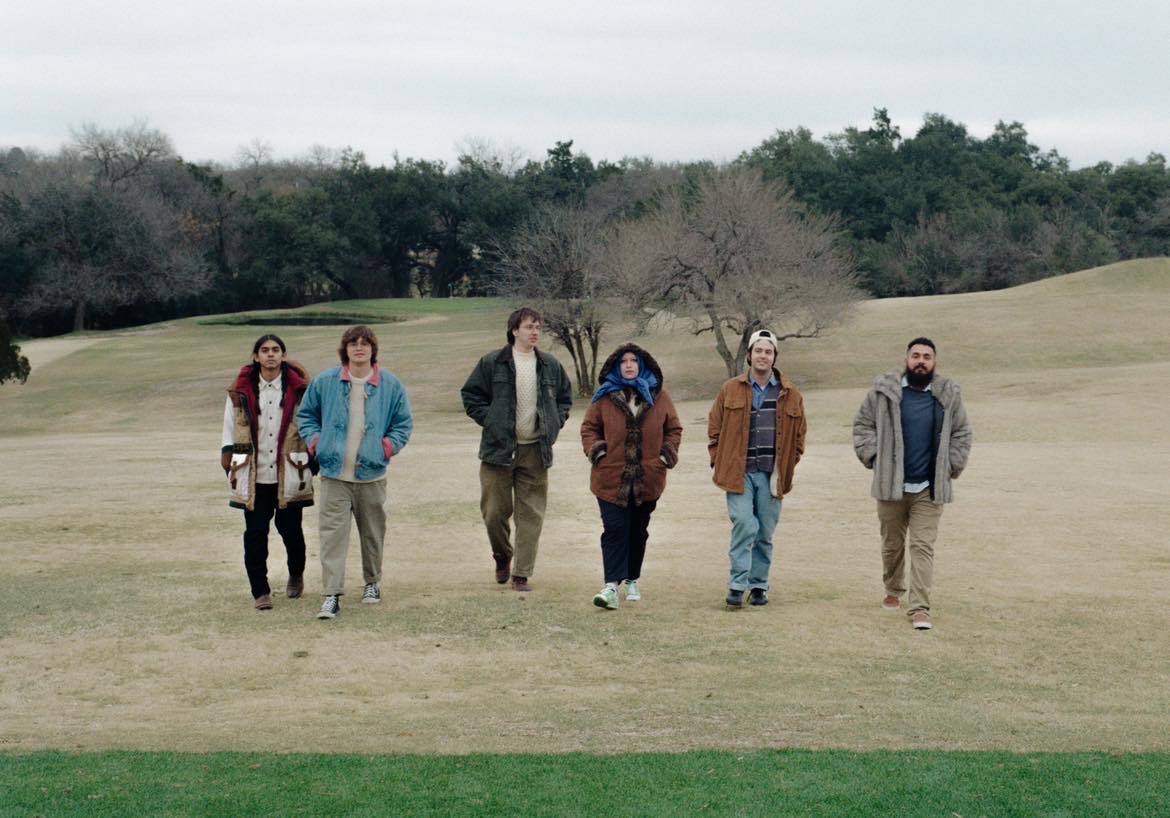
Stalefish swims onto the scene
Stalefish emerged as a product of several collective projects, threaded together and made new by Hausman and his friends and fellow artists who had been collaborating over the years.
“We worked really hard to establish ourselves,” Hausman says. “Then from there, we graduated college, and we were like, ‘Okay, let’s grow up a little bit, and we'll do this,’ you know? And so that's when Stalefish came into the picture.”
During this time, Hausman began pursuing his master’s and working full-time at Dell. He’s found that his background in marketing has helped to propel the band’s audience engagement.
Stalefish’s most recent record, “It’s All Down Here from Hill,” became the second of two released since the band’s debut at the end of 2023. Additionally, it was their inaugural album to be produced by friend Sam Franklin.
The autumn release features kaleidoscopic groove, “Chia Pet,” which alludes to the thralls of capitalism and consumerism. The song Hausman considers the most difficult sonically to work on, it taught him about refinement when it comes to instrumentation and production.
“It was an interesting thing to be like, How can we make this sound really lush and full and dreamy without it sounding amateurish? [Making] it sound like a real record. Surprisingly, that comes with a lot of restraint … It comes with doing as much as you can with as little as possible, so that there's not so many parts that are fighting with each other.”
As the core songwriting team, Magee and Hausman, along with Ryon, produce song lyrics prior to the band coming together to add instrumental layering. Magee, BS ’23, met Hausman at freshman orientation at UT, and the duo later became roommates and worked on several projects together in college before joining forces on Stalefish.
“I think that it's been a lot easier the more we've done it,” Magee says. “It was hardest to write songs back on the first album, at least for me, because we were really excited to do something new. We felt like there was a lot of pressure because we had all just been in two bands together, and then we became one band. We wanted it to feel like a necessary change, and we wanted to do something different.”
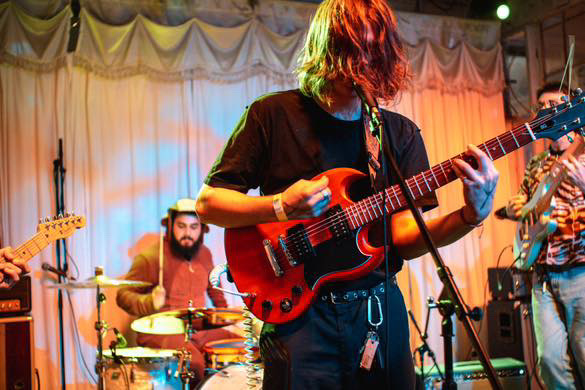
On to the next
Magee’s recent move to Pittsburgh to pursue a PhD in astrophysics, as well as Delost’s move out of Austin, pose new challenges for the band. The moves evoked a rebalancing for the group, and a shift away from smaller opportunities to focus on larger-scale projects and performances.
“It has definitely changed how frequently we're able to write songs, because it was pretty dependent on whenever I'm in town, but it is evolving slowly to accommodate me being out of the way,” Magee says. “It's definitely changed stuff and made it more challenging. But at the same time, I feel like we've adapted well to the change.”
As for future albums, conceptualization and recording will look different for the group as they navigate this process. They have planned to dedicate school breaks to in-person sessions, while remotely organizing bits and pieces for their upcoming project.
“Stalefish is the project that has gained the most traction, especially in the local scene, because we've created a lot of relationships with the local bands here in Austin,” Cazares says. “Despite the fact that [the recent moves have] made us slow down a little bit, I think it's also kind of helping us mature as a whole. Stalefish has a lot of potential. We definitely want to take advantage of that.”
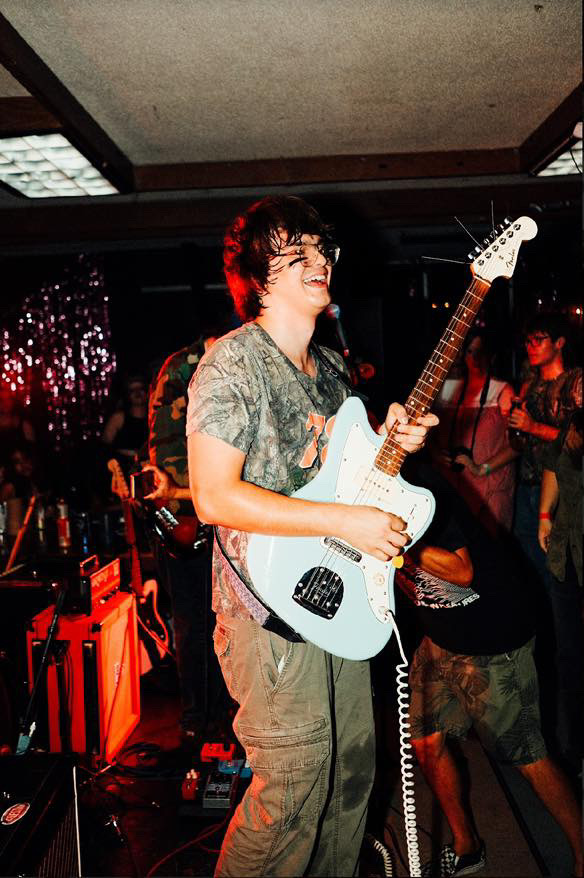
CREDITS: From top, Spencer O'Neal; courtesy of the band; Leah Blom, BA, BS ’23; courtesy of the band; Spencer O'Neal





